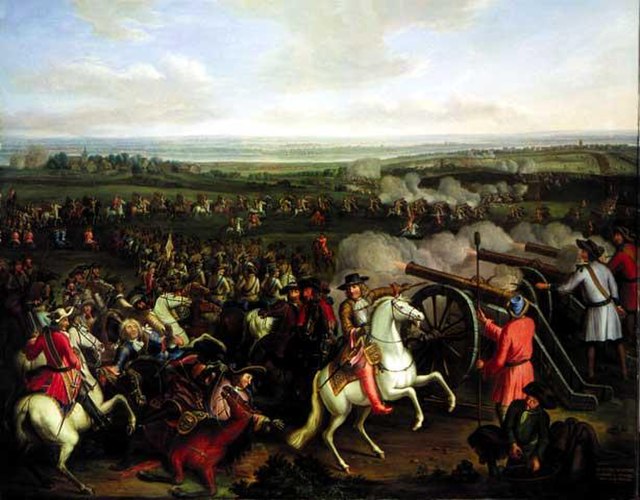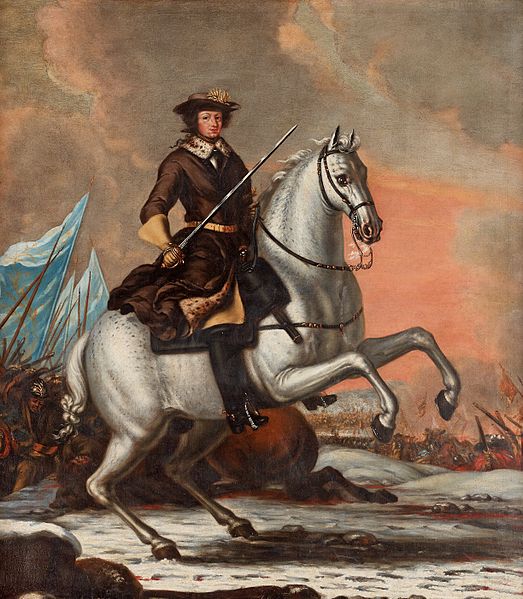The Battle of Fehrbellin was fought on June 18, 1675, between Swedish and Brandenburg-Prussian troops. The Swedes, under Count Waldemar von Wrangel, had invaded and occupied parts of Brandenburg from their possessions in Pomerania, but were repelled by the forces of Frederick William, the Great Elector, under his Feldmarschall Georg von Derfflinger near the town of Fehrbellin. Along with the Battle of Warsaw (1656), Fehrbellin was crucial in establishing the prestige of Frederick William and Brandenburg-Prussia's army.
The Battle of Fehrbellin by Dismar Degen
Memorial in Hakenberg near Fehrbellin
The Swedish Empire was the period in Swedish history spanning much of the 17th and early 18th centuries during which Sweden became a European great power that exercised territorial control over much of the Baltic region. The beginning of the period is usually taken as the reign of Gustavus Adolphus, who ascended the throne in 1611, and its end as the loss of territories in 1721 following the Great Northern War.
Sweden's coat of arms (with erroneous tinctures) on a wall of City Hall at Lützen in Germany.
Triumph of King Charles X Gustav over the Polish–Lithuanian Commonwealth, 1655
King Charles XI
Charles XII






